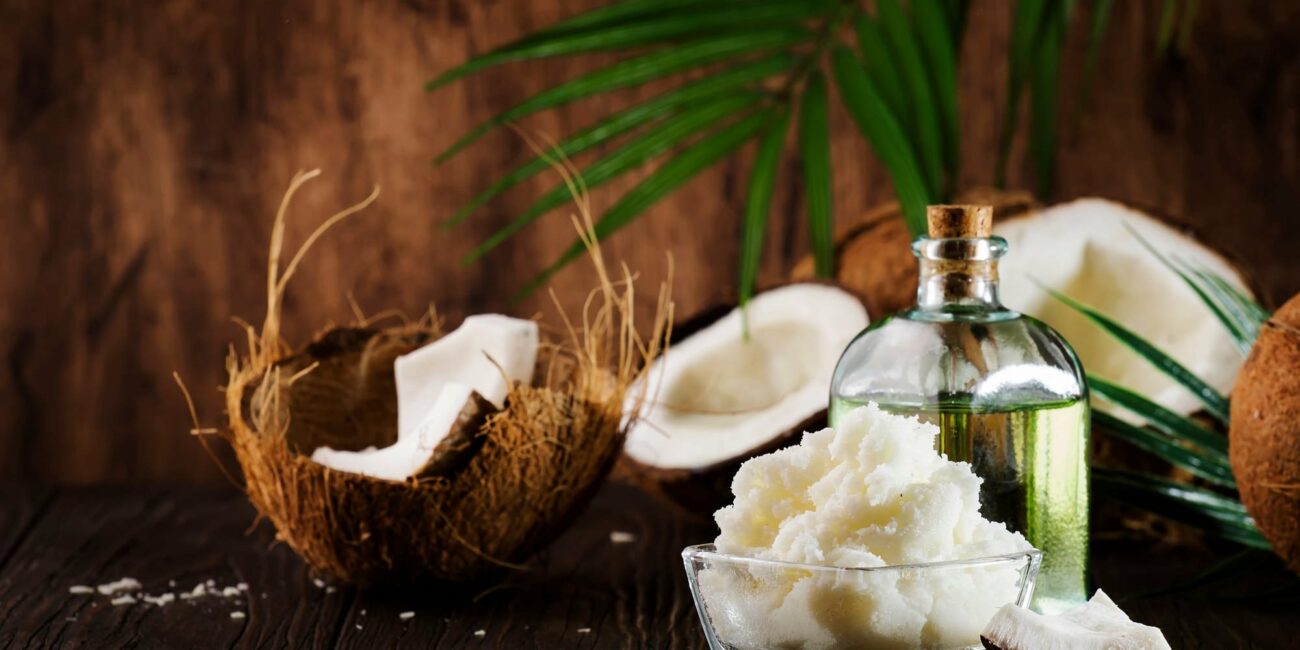Does MCT Oil Break a Fast? Unveiling the Truth

MCT oil is a supplement popular in the health world. It’s particularly praised by those partaking in the keto diet or any intermittent fasting plan. If you’re looking for a helping hand to curb your hunger, clear your mind, and push you to the finish line, MCT oil could be your solution.
There’s a lot of uncertainty during fasting regarding when and how to take MCT oil. It’s difficult to know how to handle supplements with the strict rules of fasting, the overload of information, and the science behind ketosis.
Perhaps the biggest question of all is, does MCT oil break a fast?
Does MCT Oil Break Intermittent Fasting?
There is no clear-cut answer about whether MCT oil will break a fast. Often, the opinion lies with the individual dieter. If you are clean fasting, then yes, even 1 calorie break a fast but if you have a different approach, then no, this oil won’t break your fast.
MCT oil has many health benefits, especially during the fasting period. An MCT oil supplement is essentially an energy booster, and for anyone who’s tried fasting, a dose of energy won’t go amiss.
Many believe MCT oil can lift energy and suppress hunger, allowing you to power through your fasting window.
Remember that MCT oil is there to support your journey and not replace meals or food consumption. It is a high-calorie supplement, so dosage is imperative. You should only use it in moderation.
It’s unlikely that consuming MCT oil will drastically reduce your chances of fat loss. Humans process MCT oil in a different way from long-chain fats. It almost skips the digestive process, leaving little opportunity to be stored as fat. Therefore, it isn’t necessarily breaking a fast.
MCT Oil and Intermittent Fasting
MCT (medium-chain triglycerides) oil is a supplement popular among keto dieters. It is a unique fat found in coconut and palm, manufactured in the laboratory to produce MCT oil.
Medium-chain triglycerides contain four fatty acids – caproic acid, caprylic acid, capric acid, and lauric acid. Unlike other fats, medium-chain triglycerides are absorbed immediately into the bloodstream, reaching the liver and breaking down to create ketones.
Ketones are an alternative energy supply. Instead of using glucose, the body uses ketones for energy, which burns stored fat. For this reason, a ketogenic diet is associated with fast weight loss and boosted energy during intermittent fasting.
If you want to reach ketosis, MCT oils are a supportive product in creating ketone bodies.
During fasting periods, you’re probably wondering whether taking MCT oil will break your fast. Keep reading to find out all you need to know about MCT oil, including dosage, benefits, and most importantly – if it will break fast.
Advertisement
You only need to take enough to curb hunger, avoid burnout, and reach the break within your fast
When to Take MCT Oil When Fasting
If you’re interested in using MCT oil while fasting, you must be wondering how to do it.
Outside of fasting, MCT oil doesn’t have a specific daily dosage. Most studies suggest between 1 and 5 tablespoons. The dosage must be modified to ensure you don’t mess up your fast. The dose is far lower, but you can take the remaining oil once your fast is over.
Start small. 1–2 teaspoons should be sufficient to ease yourself in and to ease your body’s cravings for food. You could take it right before you begin a fast or save it for your eating period.
The prime time to consume MCT oil is when you wake up in the morning. That way, you get that energy boost at the beginning of your day, encouraging you to continue with your fast. You could even add it to black coffee, tea, or another calorie-free beverage.
During fasting, it might seem reasonable to take more MCT oil in an attempt to eliminate hunger pangs. However, too much can cause nasty side effects, including stomach upset, bloating, and cramping. It may also produce a laxative effect, resulting in diarrhea.
Check the label when purchasing MCT oil. The oil is the purest form, but some manufacturers add other ingredients, including artificial sweeteners, that add calories and reduce the potency.
4 Benefits of MCT Oil
| Benefit | Description |
| Suppresses hunger | A godsend during fasting is to be able to manage hunger pangs. With MCT oil, the healthy fats within work differently in the body. They are harder to break down, and therefore require more time. You feel fuller for a more extended period as your body processes the fats with the extra time. While fasting, using MCT oil could be just what you need to keep your hunger at bay. |
| Encourages fat burning | MCT oil is closely associated with ketosis, a metabolic state that pushes the body into fat-burning mode. Instead of using glucose for energy, the ketone production supplies energy without carbohydrates’ insulin-induced response. It’s thought that MCT oils can aid weight loss, which is great if your fasting diet centers around losing weight. An MCT oil supplement can help manage your eating habits and food intake, mitigating the tendency to overeat, especially right after a fast. |
| Brings mental clarity | During fasting, it’s normal to feel tired, dizzy, and weak as your blood sugar levels reduce. You may become irritable and struggle to think clearly – most people who fast will experience the fuzzy feeling of brain fog. As the addition of MCT oil creates ketones, the blood-brain barrier is reached with ease, essentially delivering energy to your brain cells. With this comes mental clarity, clearing out that brain fog, and bringing your focus back. |
| Good for gut health | A happy gut supports your overall wellness, including digestive, heart, and brain health. Unlike long-chain triglycerides, the digestive processes are much faster, as your body absorbs the MCT oil quickly, delivering it directly to the liver. Although too much MCT can have adverse effects on gut health, most people can handle it when taken in the proper doses. To remain cautious, always begin with a small amount of MCT oil to see how your body reacts. Other additional health benefits include increased energy, improved blood sugar levels, insulin levels, and insulin sensitivity. |
A Word From Our RD
MCT oil is an easily digestible, partially processed supplement derived from fats known as medium-chain triglycerides. It is found in coconut oil, palm oil, and some dairy ingredients, in which the MCTs are separated using a process called fractionation.
MCT oils are popular in the health and fitness world, particularly those following the keto diet. The consumption is said to trigger and promote ketosis, a reaction within the metabolic system where the body uses stored fats for energy instead of glucose.
For significant effects, you can consume MCT oil in limited doses during an intermittent fasting plan. Take it on its own or mixed with food and drinks. A good starting point is to take a small amount right before a fast. That way, the benefits can take effect just in time.
Some avoid MCT oil while fasting altogether. Fasting demands zero calories, and MCT oil does contain calories.
Although the dosage can affect people differently, generally, the potential benefits you can expect are an energy boost, a suppressed appetite, and greater mental clarity. As with any supplement, however, you may experience adverse symptoms.
Too much MCT oil can cause stomach discomfort, diarrhea, and vomiting. It’s essential to speak to a physician before experimenting with MCTs to ensure you consume a suitable amount and reap the health benefits.
Summary
So, will MCT oil break a fast? Ultimately, the answer depends on what you constitute as breaking the fasting period. In the strictest terms, any calorie intake will technically interrupt a fast.
However, consuming MCT in a controlled amount will not diminish the health benefits of fasting. It will not hijack your journey as long as you watch your caloric intake.
With the primary advantages of MCTs, namely the potential production of ketosis, the energy burst, and hunger-fighting properties, MCT oil can contribute to good metabolic health.
Whatever intermittent fasting plan you’re on, speak to your doctor about using an MCT oil supplement. Just make sure you find the product in its purest form for maximum results.







Comments (0)